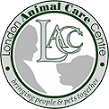Don’t Kitnap Kittens
Spring in Ontario marks the beginning of kitten season and with it, added pressure on shelter resources. When we find a litter of kittens, our first instincts tell us to rush to their aid. Thankfully, human intervention is typically not required. In fact, the best things we can do is leave the kittens alone. Mom, will likely return shortly and it’s critical that the kittens remain in her care as she offers the best chance for survival. Dr. Heather Kennedy DVM of the KC Pet Project explains in detail the importance of why Kit-Napping can do more harm than good in her article.
Read Article
Throughout the challenges presented by COVID-19, London Animal Care Centre was blessed by the response of the community of London wishing to help and assist with our furry friends. Moving forward, LACC is looking to continue engaging the talents of the community in a program to assist kittens. The Don’t Kitnap Kittens strategy will empower those interested, to help kittens right in the community. This goal of this care in place strategy is to ease the challenges associated with large volumes of stray kittens entering the shelter on a daily basis throughout the spring and summer months. In short, it is best for kittens to remain with their mother until 6 weeks of age when they can be spayed/neutered, microchipped and adopted. This will also provide an opportunity for their mother to be spayed to ensure no future litters are being produced. For cats/kittens that have not been socialized, it will provide an opportunity for important socialization of the kittens and ensuring necessary S/N surgeries are performed for these non-socialized cats prior to returning to the community.
London Animal Care Centre will help by providing starter kitten care packages for new foster homes, available for pick-up. Once 6 weeks of age, access to vaccinations, parasite treatment, microchipping and spay/neuter surgery is available through the City of London’s veterinary clinic, London Animal Shelter Services.
More Resources
Not sure what to do....
The following decision making chart will help you determine an action plan if you find kittens.
If the kittens in question are obviously sick or injured, please call London Animal Care Centre at 519-685-1330. For more information regarding kittens that need our immediate intervention, please read about it here:
I want to help kittens...what do I do next?
- Provide foster care to mom and kittens by providing food, water & shelter at your home. If mom is not friendly enough to be cared for in your home, you may choose to care for the family outdoors until the kittens are ready to be vetted. Don’t forget mom.
- Make arrangements to pick-up your starter kitten care package from the shelter. Please call 519-685-1330.
- Begin socialization techniques for those kittens that require some additional assistance.
- At 6 weeks of age, arrangements can be made with London Animal Care Centre to have mom & her kittens spayed/neutered, vaccinated and treated for parasites. Please call London Animal Care Centre 519-685-1330 to co-ordinate delivery and appointment times. Information will also be available to assist with planning the transport of those cats/kittens that are less socialized. It is vital that mom and kittens are fixed to prevent future litters. It is vital that mom and kittens are fixed to prevent future litters.
- Be on the look for adoptable homes. While you are providing temporary foster for this family, let your network of people know what you are doing so collaboratively we can quickly find homes for these pets once they are ready for adoption.
- Where homes are not immediately available for permanent placement, adoptable cats/kittens will be returned and sheltered at LACC after vetting until new homes are found.
- Those cats/kittens unable to be socialized to the point they will thrive in a home, will be entered into Trap, Neuter, Return / Shelter, Neuter, Return program. After receiving vaccinations (including rabies), parasite treatment, and S/N surgery, these felines will be released into the neighbourhood they were found without the danger of adding more kittens in following years.
